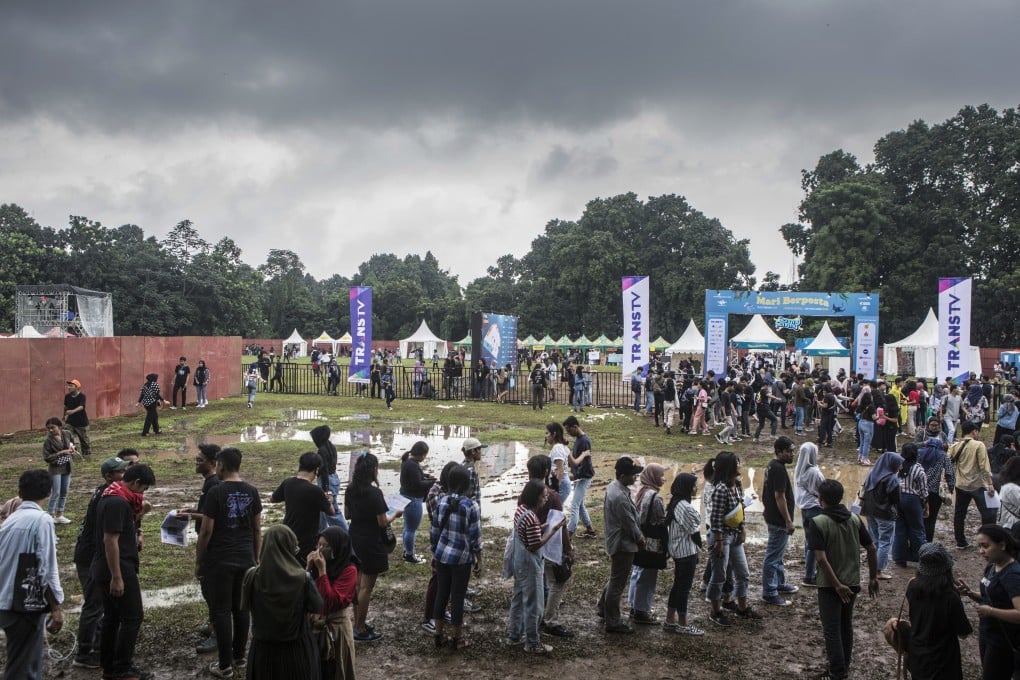Weather men: how Indonesia’s rain masters keep the skies clear for weddings, festivals and other events
- In Indonesia, organisers of outdoor events often hire a rain master, known as pawang hujan, to ensure the skies are blue
- The rain masters, who recite incantations and perform rituals, are mostly employed during the rainy season

Wili Lo spent all afternoon in the backstage area of a music festival in Bogor, a satellite city just outside the Indonesian capital, Jakarta, last Saturday.
A picture of concentration, he recited an incantation as he held both his hands in the air. He then knelt down, slowly moving his hands, before bringing them together while looking up at the sky. Lo then proceeded to walk in a circle, anticlockwise.
It rained briefly that afternoon, something Lo was not too happy about. He stuck with his ritual for some time, having asked not to be disturbed. About 15 minutes later the rain stopped and the sun shone, coaxing the audience back to the front of the stage to see their favourite musicians perform.
Lo is a pawang hujan, or “rain master”. In Indonesia, these rain men are often hired by organisers of outdoor events for their perceived ability to prevent rainfall from ruining the day.

“Performing the ritual is very tiring for me,” says 72-year-old Lo. He focuses his inner energy while reciting the incantation to direct rain clouds to another part of the sky, he explains. “So it’s not entirely stopping the rain,” he adds.